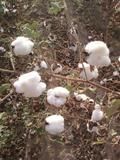Organic cotton: Healing wounds in Vidarbha

“Due to the forces of demand and supply, the organic cotton market will grow. But because of other products that have the same appeal, it is unlikely that major cotton-producing countries are giving any major focus on the development of organic cotton per se,” remarked Doug Christie, President and BU leader of Cargill Cotton. “Though the demand for organic cotton is growing, one cannot say the same about its production.”
Case studies from around the world show that not every country benefits from the cultivation of this variant of cotton. In a case study carried out in Turkey and published by the Bulgarian Journal of Agricultural Science, in 2012, Turkey is clearly one such country that is not deriving benefits from the cultivation of organic cotton. Conventional cotton farmers had a greater advantage in terms of gross and cost margins in Turkey.
Similarly, Adam Kay, CEO of Cotton Australia told Fibre2Fashion.com that organic cotton farming has been limited in the country in the past because of limited premiums, lower yields as compared to conventional cotton farming, and three times lesser water efficiency. They have found that economically it is not a great idea to produce organic cotton in Australia, and hence unless the demand for organic cotton increases dramatically in the world market, Australia would largely refrain from its production.
But the scenario is different for India. Shamika Mone, research director of Organic Farming Association of India (OFAI) stated that it is conducive to grow cotton with organic practices in the country. India became the largest organic cotton producer in the world in 2007-08. In 2008-09, India accounted for nearly 65 per cent of the world's organic cotton production. In 2009-10, it was widely acknowledged that production in India propelled world organic cotton production to an all-time high - 241,697 tonnes (81 per cent) from India. In 2010-11, organic cotton and textiles constituted 25 per cent of the organic exports from India, amounting to 17,363 mT of export. Organic cotton export has seen stupendous increases of 152 per cent year-on-year growth in recent years.
“Our country had a lot of traditional cotton varieties that got contaminated with the advent of Bt cotton and chemical farming. Our traditional methods of cultivating cotton were all organic,” she informed. “The reason for growing suicidal desperation over the years was the failure of the Bt cotton crop due to lack of irrigation, scanty rainfall, hailstorms, inferior quality seeds and massive debts (among farmers). The bad performance of cotton crop led to lowering of the production estimates significantly in spite of increase in the area of cotton cultivation.”
































-Ltd..jpg?tr=w-120,h-60,c-at_max,cm-pad_resize,bg-ffffff)





.jpg?tr=w-120,h-60,c-at_max,cm-pad_resize,bg-ffffff)
.jpg?tr=w-120,h-60,c-at_max,cm-pad_resize,bg-ffffff)






